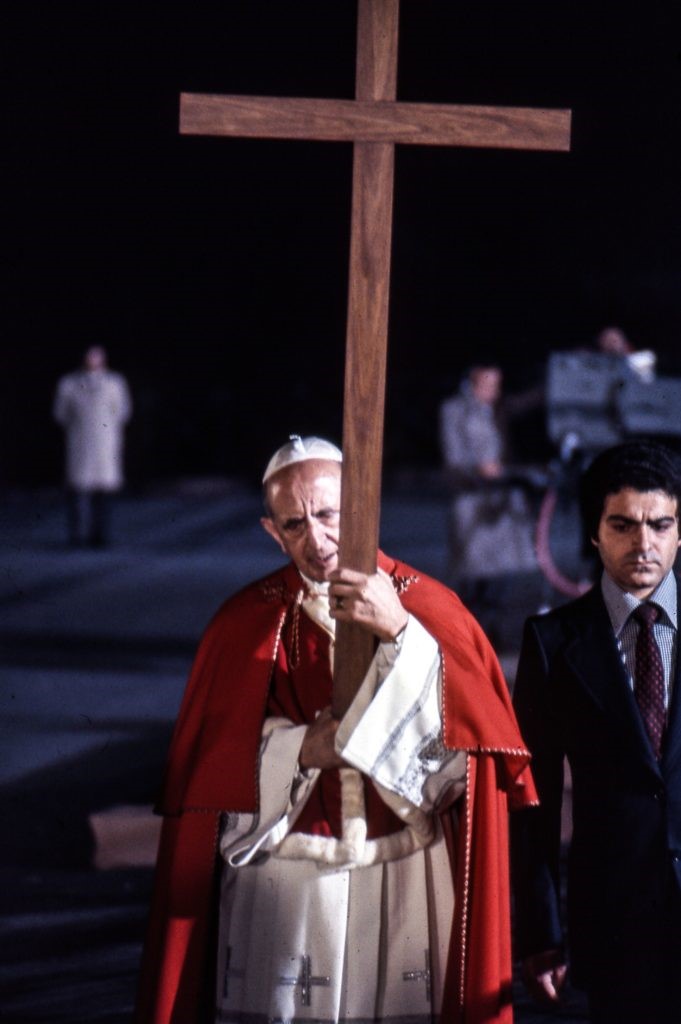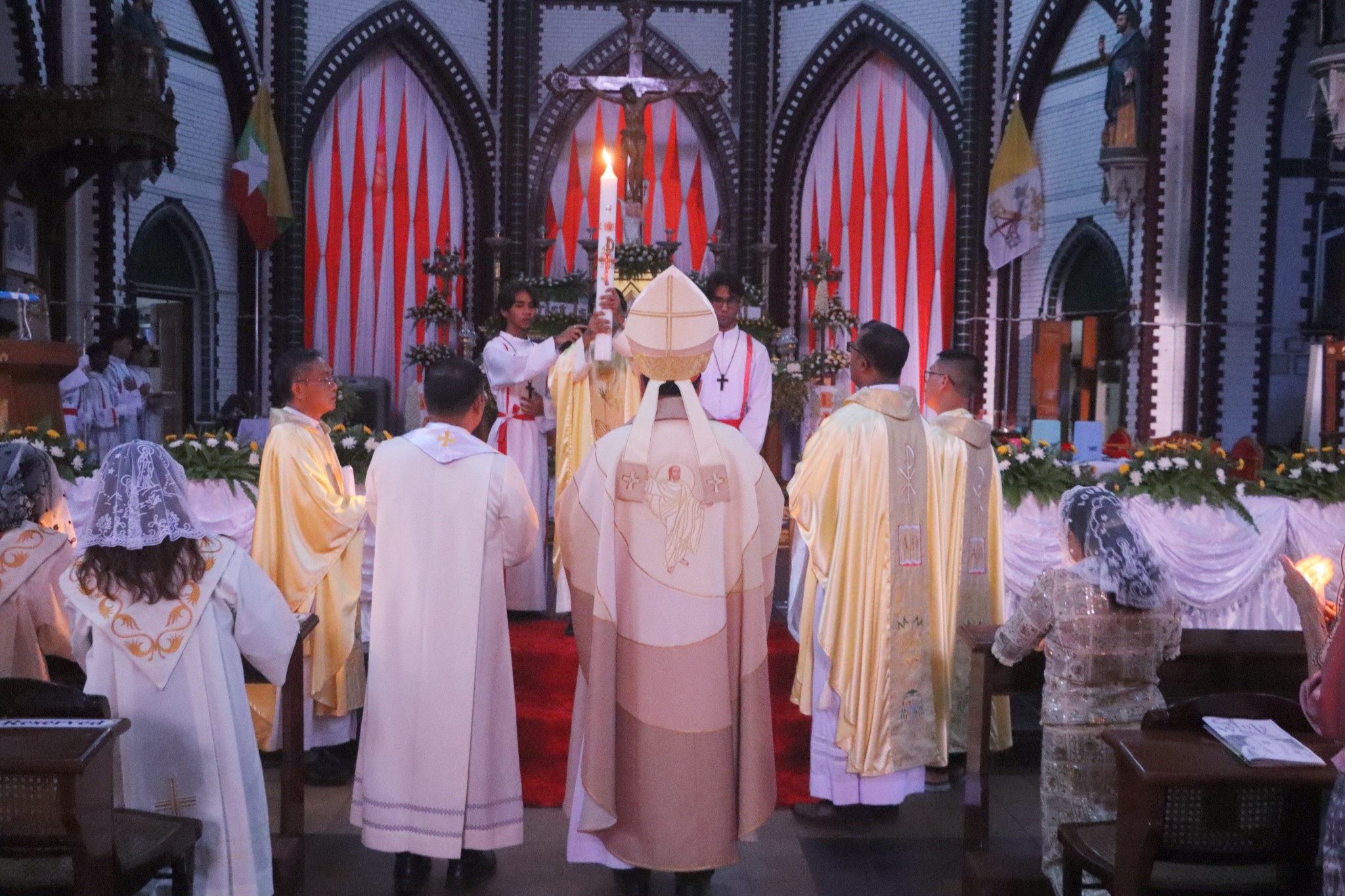– Fausto Gomez OP
As soon as the encyclical on the regulation of birth was issued by Pope Paul VI on July 25, 1968, contrary reactions from “liberal” priests and theologians in favor of contraception appeared in magazines and journals. Let us examine their arguments and the contrary comments of an outstanding theologian in those times in the Philippines, Fr Francisco del Rio OP (1902-1984).
Del Rio writes that some theologians, a few Bishops and priests, including in particular Dutch Bishops and priests, “are taking an attitude of frank approval of contraception.” When is this lawful for them? The answer – they say – should be left to “the responsibility of the individual conscience.” They affirm, moreover, that “the spiritual sense” of the members of the Christian community (sensus fidelium) approves factually the use of contraceptives. Health care ethicist Del Rio counters: Morality is not a question to be settled by vote, even in the personalist atmosphere of today. He adds cogently: the scientific answer is given by physicians not by theologians, priests or confessors. To these, he advises prudence – and respect for the teaching of the Magisterium on the matter.
The “liberal” theologians appealed, furthermore, to “the spirit of Vatican II.” Del Rio comments: Their understanding of “the spirit” of the Council is very subjective. “There is no evidence at all in the Documents of Vatican II to say that HV violates the spirit of Vatican II. In issuing Humanae Vitae, the Pope did not exceed his authority nor is he against “collegiality.” Paul VI consulted bishops, experts and theologians (cf. Humanae Vitae, HV, 5; Vatican II, Lumen Gentium, LG, 22 and 25)
The dissident theologians assert, furthermore, that “the biological act is outside the realm of faith” and therefore the Church has no authority over it. Del Rio reacts: “What is at issue is not the violation of a biological process as such, but the violation of that human biological process which is for the genesis of a human being.” Are the contraceptive methods at the biological level of human life a-moral? Theologian Del Rio explains: “Not only in the sphere of sex, but right through the whole of human existence, the biological is the bearer of morality. Eating is biological process; the need to eat is animal need, but most of human justice is based on man’s right to eat in liberty and dignity the food he needs biologically.” Is sexuality merely biological? It is not merely biological but also personal, rational and spiritual. Del Rio adds: “Human sex is not merely instinct but the symbol and expression of the moral and spiritual values of love, faithfulness, charity and indissoluble personal union.” Indeed, “Biological fertility is normative, not because biology as such is sacred, but because it is the outer surface of human, personal, spiritual love between the sexes.”
The Church’s condemnation of contraception, sterilization and abortion is presented by some dissident theologians as impossible morality, or “morality for giants.” This argument, applied also to other ethical norms, comes from the 3rd century, and it is easily refuted by the lives of many Christians, martyrs and saints yesterday and today (Cf. HV, 20, 21).
Let us focus now on three relevant themes of HV: responsible parenthood, over-population and poverty.
Responsible Parenthood – The Church is, as clearly presented by Paul VI, in favor of responsible parenthood. The Pope writes: “If, then, there are serious motives to space out births, which derive from the physical or psychological conditions of husband and wife, or from external conditions, the Church teaches that it is then licit to take into account the natural rhythms immanent in the generative functions, for the use of marriage in the infecund periods only, and in this way to regulate birth without offending the moral principles” (HV, 16).
Paul VI explains (HV, 10): Married love, therefore, requires of husband and wife the full awareness of their obligations in the matter of responsible parenthood, which today, rightly enough, is much insisted upon… But if we then attend to relevant physical, economic, psychological and social conditions, those are considered to exercise responsible parenthood who prudently and generously decide to have a large family, or who, for serious reasons and with due respect to the moral law, choose to have no more children for the time being or even for an indeterminate period. As a consequence the commitment to responsible parenthood requires that husband and wife, keeping a right order of priorities, recognize their own duties towards God, themselves, their families and human society.
As Vatican II had taught earlier: appropriate consultation on the matter is prudent, but it is the parents – and no one else – who ultimately decide in the sight of God (cf. GS, 50). From this follows that they are not free to do as they like in the service of transmitting life… On the contrary, they are bound to ensure that what they do corresponds to the will of God the Creator (cf. GS, 50-51)
The Magisterium of the Church recommends, when warranted, responsible parenthood through natural family planning methods. The safe period is good because “there is no positive, deliberate frustration of the sexual act; self-control is practiced; it is a rightful use of liberty, just as entire abstinence would be,” and “there are no ill effects on the health of the man and woman.” It respects the responsible transmission of life through recourse to the observation of the woman’s cycle. Its practice requires “reciprocal respect, shared responsibility and self-control” (F. del Rio). Methods of natural family planning: (1) The calendar rhythm (on regularity of woman’s menstrual cycle); (2) The ovulation method or Billings method (on the appearance of mucus at the vulva); (3) The sympto-thermal method (criteria for determining the ovulation time). Fertility period: strictly speaking, about six days in a cycle (cf. Ashley-O’Rourke, Health Care Ethics).
Over-Population – Pope Paul VI says in Humanae Vitae that “rapid demographic development” creates difficulties for many families particularly in the developing countries (HV, 2). As a consequence, public authorities may encounter “serious difficulties” on this matter, and must contribute to the solution of the demographic problem by “a provident policy for the family, a wise education of peoples in respect of the moral law and the liberty of citizens” (HV, 23). “No solution to these difficulties is acceptable which does violence to human dignity and is based only on a materialistic conception of man himself and of his life” (HV, 23).
In our secular society, population control continues to be used as another argument in favor of the regulation of births. The secular stand is clear: World population which – according to them – causes poverty and misery in many places has to be curbed by governments throughout the world. The means recommended to curb the population growth are broad programs of contraceptives, especially “the pill,” sterilization and even abortion. The propaganda of these methods underscores their easy use, efficacy and suitability “to avoid conception at any price.”
Why is the Catholic Church opposed to the secular solution to the problem of over-population? The radical argument is simple: the secular solution is opposed to the dignity and rights of man and family. Moreover, Christians with many other believers firmly hold that God is the Creator of life, and that life is sacred and therefore, God must be revered – and also human life.
Poverty – What the world needs is not curbing of population really, but – as the Church’s teaching emphasizes after Vatican II – justice and equality and solidarity (cf. HV, 23). Pope Paul VI refers to his encyclical Populorum Progressio (HV, 18), one of the best papal encyclicals of all times on social ethics (cf. PP, 48-55). He points out in particular the social teachings of Pope John XXIII in his encyclicals Mater et Magistra (1961) and Pacem in Terris (1963), teachings that are grounded on the previous papal documents of the social doctrine of the Church and especially on Vatican II. One remembers the powerful words of Pope Paul VI at the United Nations in New York on October 4, 1965: “Human life is sacred… Your task (the UN’s) is so to act that there will be enough bread at the table of mankind, and not to support an artificial birth control that would be irrational, with the aim of reducing the number of those sharing in the banquet of life.”
Is Paul VI‘s Humanae Vitae too negative? As theologian Del Rio proclaims: “Catholicism is universal affirmation, and the good Catholic is the man who is always affirming, and who denies in order to affirm.” The Church shows herself as “a sincere and disinterested friend of men, whom she wishes to help” (HV 18). She wants to contribute to the establishment of “a truly human civilization”- a civilization of love. Jesus did not come to condemn but to save (cf. Jn 3:17). Pope Paul VI comments: “He was indeed intransigent with evil, but merciful towards individuals” (HV, 29). And so must Christians be!


 Follow
Follow


